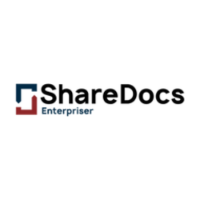
This article was genuinely published on here and copied with permission.
Enterprise Content Management (ECM) is a collection of processes and technologies that are incorporated to maintain a business's digital and paper-based data lifecycle. It encloses the capture, management, storage, preservation, and delivery of different types of content that consists of documents, images, videos, and audio files. ECM solutions generally use tools for document management, workflow management, records management, imaging, alignment, and integration with other systems such as document management systems, email, messaging, and enterprise applications.
The Objective of ECM
The primary objective of Enterprise Content Management (ECM) is to enhance the efficiency, credibility, and effectiveness of business content management processes while making sure that the company's content is secure, compliant, and easily accessible to authorized and certified users.
Types of Enterprise Content Management (ECM) Systems
There are numerous types of Enterprise Content Management (ECM) systems; each offers striking features and caliber. The most commonly used ECM systems are
• Document Management Systems
These systems are mainly designed to systematically organize and manage electronic documents, including text, images, docs, and PDFs. They usually include features such as version control, document search, and access control.
• Records Management Systems
Records management systems are generally used to manage and preserve the document in compliance with legal and regulatory needs. Generally, they include features such as retention schedules, classification, and disposal.
• Digital Asset Management Systems
Digital Asset Management systems are generally used to manage and organize digital assets such as images, videos, and audio files. They use metadata management, search, and access control.
• Web Content Management Systems
These systems are deployed to maintain and publish web content, including text, images, and videos. Usually, they use workflow management, version control, and access control.
• Case Management Systems
These systems are designed to manage and track the progress of prevailing projects or initiatives, generally incorporated in industries such as healthcare, government, and financial services.
• Email Management Systems
These systems are used to manage and organize email communications, and usually, they encompass features such as email archiving, retention, and eDiscovery.
• Collaboration Platforms
Collaboration platforms are used to facilitate collaboration and communication among team members and typically include features such as document sharing, task management, and team chat.
End note
Hence, these are the most common types of Enterprise Content Management (ECM) Systems with their importance. Besides this, you know more about the examples of these types of ECM systems; there might be other specialized systems, depending on the industry standards and the organization's particular requirements. However, if you are looking for a professional firm to provide you with electronic document management software, "Hridayam Soft Solutions Pvt. Ltd." They provide everything from the right document management system to electronic workflow automation answers. For more information about them, you can visit their official website https://www.sharedocsdms.com.
















.png)
.png)








Leave Your Comment & Rating Below
0 Comment(s)